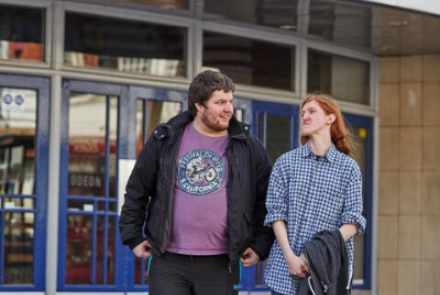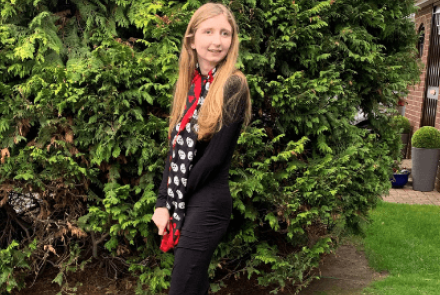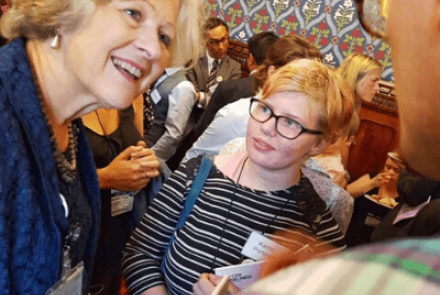To declare or not to declare
Job hunting is never easy - from filling out lengthy application forms to making sure you don’t get lost on interview day to trying to sell yourself in thirty minutes or less, it’s a stressful time. Three years ago, I had an extra dilemma to face: should I disclose that I was autistic to employers?
I was diagnosed only a year before I started job hunting while I was still at university. That being said, I had always suspected I was “different”. I was a shy, extreme perfectionist with a sense of humour as dry as the Sahara and I had never quite felt like I belonged.
Deciding whether to declare my disability was a challenge for two reasons. For one thing, I was still coming to terms with the realisation that I was, in fact, disabled. On some level, I had always believed that I would somehow undergo a transformation from being an awkward teenager to a woman who was the life and soul of the party. Now I was starting to face the realisation that that wasn’t going to happen (I later made my peace with the fact since I’ve never liked parties!). For another thing, I was worried how other people would treat me, if they knew I was autistic.
I received my diagnosis halfway through a gruelling Law degree and got little in the way of support. I also had a few nasty experiences, including one at the hands of a tutor. I had been fairly anxious about an assignment and had asked for clearer instructions, only for my tutor to refuse to provide any extra information because he was concerned I was using my diagnosis as a crutch. My tutor also insisted that my request wasn’t related to my autism, that I was simply being shy, and that he knew about autism because he had performed research involving autistic people. While I went on to switch tutors and get a top mark in that class, the experience of disclosing had left a bad taste in my mouth.
In the end, I chose not to disclose my disability when making job applications. I took this approach for a number of reasons. Firstly, I had inadvertently lived “passing” as a non-autistic person most of my life, albeit with the majority of people describing me as “quirky” at best and “odd” at worst. I think this is in part because I’m quick witted which gives me a free pass at being “unusual”. I have a lot of autistic family members (no surprises there!) and by comparison, their autism is more “obvious”.
Secondly, I had researched the job I was applying for and I knew I would be able to do the work. I didn’t want to risk having doors shut in my face because of any misguided views on autism before I’d even had a chance to show people what I could do. Finally, I was applying for jobs as a trainee solicitor in the City, a very conservative profession. As a working class woman I felt like I was already rocking the boat enough without declaring my disability to boot.
I appreciate that my thought process sounds a bit doom and gloom. I believe everyone should be able to disclose without fear of any repercussions or discrimination. The ironic thing is, I wouldn’t even change my behaviour if I did disclose. There are undeniably aspects of my work that I find challenging, such as trying to get a steer on how much detail and depth people want me to go into in a given task. That being said, I feel this concerns me more than my colleagues, who have commended me on the quality of my work.
It’s undeniably tiring having to hold back a part of yourself so it’s important to really weigh up your options, in particular:
- Consider the type of work you aspire to do - will your strengths and weaknesses allow you to do the work without reasonable adjustments being made? There’s no point in struggling if you could flourish with a few small changes being made to the workplace;
- Research possible employers - try to gauge how effective an employer’s diversity initiatives are and get a feel for the industry more generally: do employers tend to recruit diverse candidates? Or is the industry more conservative? Likewise, it’s important to decide whether working in an inclusive workplace is more important to you than working in a particular industry if that industry is especially conservative.
- Remember the consequences - choosing whether or not to declare has legal consequences. If you declare your disability and are then discriminated against, this is unlawful. Whilst it might be a challenge to enforce those legal rights, if you decide not to disclose, you lose that “safety net”.
I’m not sure if my approach is the right one, or if there is such a thing as the right approach. Disclosure is a very individual decision. As I embarked on my first graduate job, it was important to me to develop an employment track record that would disprove any stereotypes as to what I could or could not do, should I later disclose.
I do one day hope to be comfortable enough to disclose to an employer. I feel like I owe it to myself and to autistic people more generally. I worry that by not disclosing, this may give the impression that I am embarrassed or ashamed of my disability. That couldn’t be further from the truth: I know for a fact that I couldn’t do the work I do if I wasn’t autistic.
One thing I’ve really enjoyed about education and employment is finding out what I am capable of. When I first arrived at university, I really struggled: I was not so much pushed as shoved outside of my comfort zone and had to contend with the challenge of learning heaps of social skills and life skills. There were some really challenging moments and I was tempted to quit on a number of occasions.
I’m now in my mid-twenties, living in London with my partner, about to qualify as a solicitor and looking for my next job. It’s going to be another tough challenge but as I look back on what I’ve achieved so far, I’m confident I’ll find my way. Whatever approach you decide is right to take while job hunting, I hope you find the right path too.












